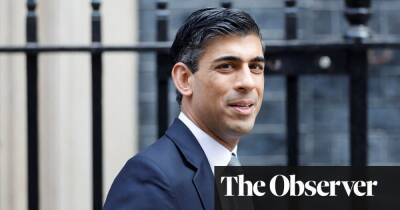Even now, Sunak and the Tories cannot let austerity go
We have passed the Ides of March, and Boris Johnson is still in office. Until the start of Putin’s invasion of Ukraine, the conventional wisdom held that the skids were under the prime minister: his nine political lives were almost exhausted and he was seriously threatened by the none-too-subtle manoeuvres of his neighbour, Chancellor Sunak.
Then Putin emerged as an unlikely deus ex machina and the conventional wisdom became that Johnson was once more safe. Folklore tells us it is an ill wind that blows nobody any good: this truly terrible carnage in Ukraine has prompted certain observers to say this is “Johnson’s Falklands”.
Anyone who believes this needs help. In 1982, Mrs Thatcher was the most unpopular British prime minister since records began. She took a huge gamble in sending a “taskforce” to take on the Argentinians, who had invaded the Falklands. It is a long story, but the gamble came off, and Thatcher sailed to her second election victory in 1983.
There is simply no parallel, and even suggestions that the UK cannot say goodbye to a prime minister in wartime do not stand up to historical precedent. No matter how much he squirms, Johnson is haunted by the public’s rightful indignation over partygate, and much that went before. The serial lawbreaker is on weak ground when he professes to lecture Putin on international law, and he has shown himself to lack the judgment we require of leaders when comparing Ukraine’s struggle to Brexit. If one episode were needed to prove that Johnson, for all his apparent political acumen, is in fact a fool, it was that absurd claim.
But the absurdity does not stop there. We are told there is a “festival of Brexit” in the offing; what is more, the “wonders” of Brexit are going to be a
Read more on theguardian.com









![Solana [SOL] tuned in 408 Github submissions each day and here’s the takeaway](https://finance-news.co/storage/thumbs_400/img/2022/4/28/23480_cns.jpg)







